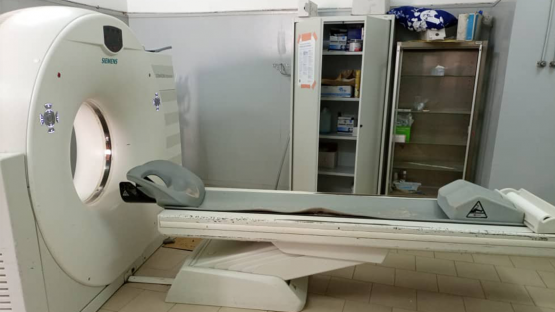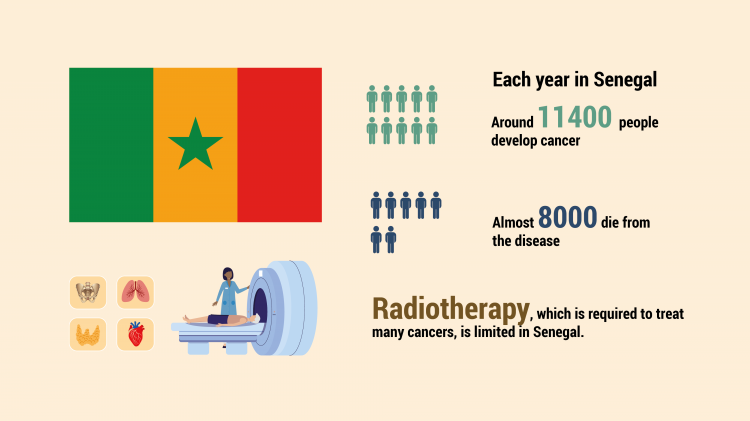Saliou Tall, Director of the Idrissa Pouye de Grand Yoff Hospital in Dakar, holds his camera up to an MRI scanner, takes a picture, and presses send. Halfway across the world, the phone of an international cancer control expert pings. This photo is one of hundreds she and other experts used, alongside videos and meetings with more than 50 Senegalese stakeholders, to assess the country’s cancer control capacities and needs during a recent imPACT Review mission.
“In these uncertain and challenging times, determination and flexibility are needed to ensure that the entire Senegalese population has access to basic services, including access to health care. Senegal is committed to the fight against cancer, and we now have a compass to better chart our path towards cancer care for all,” said Siga Diop, Representative of the General Director of Public Health.
The review was conducted from July to December 2020 in a virtual format by the IAEA and its partners, the World Health Organization (WHO) and the International Agency for Research on Cancer (IARC), due to coronavirus-related travel restrictions. Results from the review demonstrate Senegal’s potential to become a country with one of the most advanced cancer control systems in West Africa, said Geraldine Arias de Goebl, Head of the Cancer Control Review and Planning Section at the IAEA.
Expert recommendations focused on interventions that reached across all areas of cancer control, such as increasing training and recruitment of medical and para-medical staff, including specialists in paediatric oncology and palliative care. To reduce the high number of late-stage cancers and diagnose and prevent more cases earlier when the chances for cure are higher, experts recommended the extension of the HPV vaccination programme and better maintenance of diagnostic equipment. Furthermore, regional hospitals would need more support in oncological services, the reviewers have concluded.
The review was conducted under the leadership of the Ministry of Health and relied on inputs from civil society organizations and ten public and private health facilities throughout the country. All areas across the cancer control continuum were reviewed to include planning, surveillance, prevention, early detection, diagnosis, treatment and palliative care. Radiation safety and security considerations also featured in the discussions. Recommendations specific to particular cancers such as paediatric and cervical were provided through this review.






